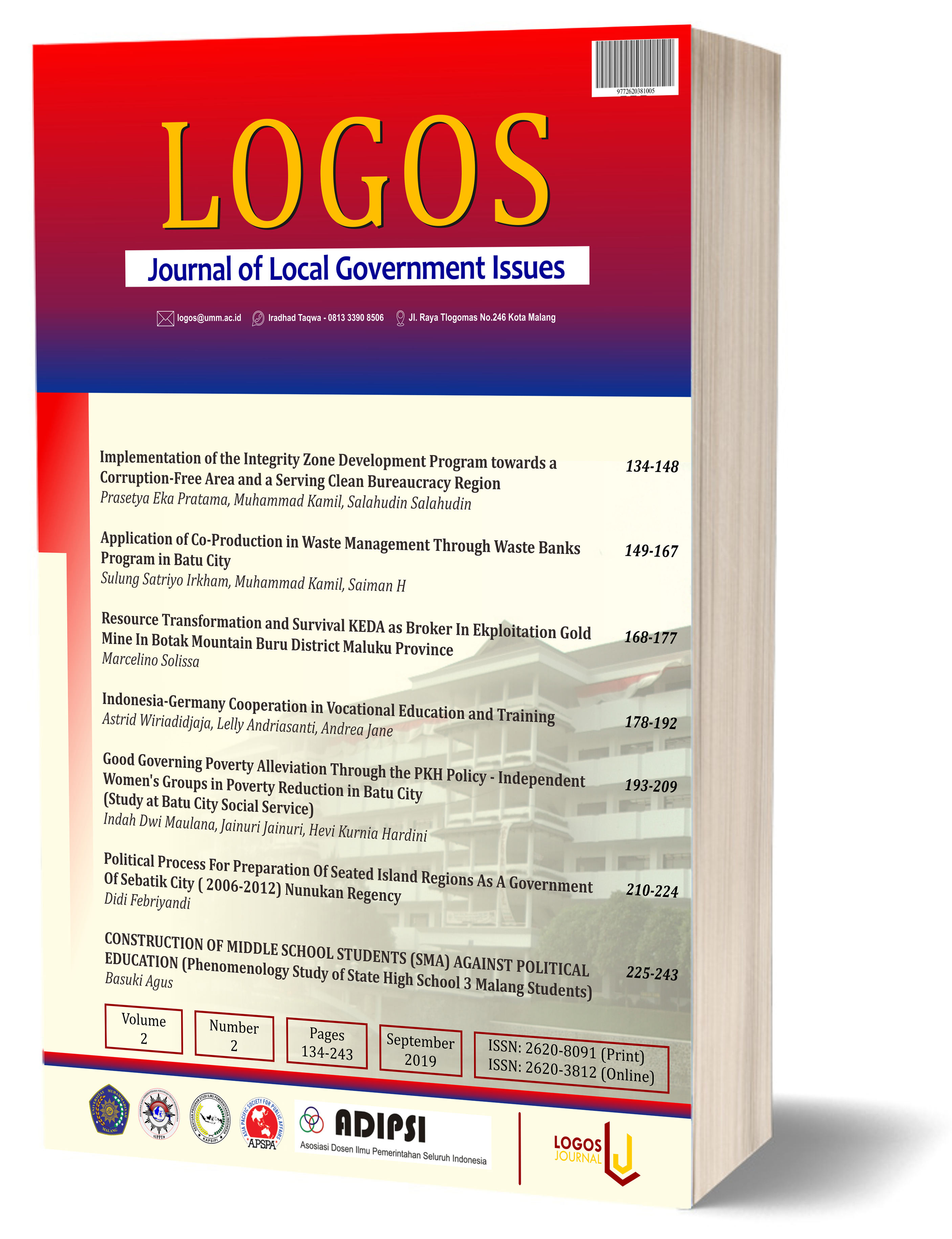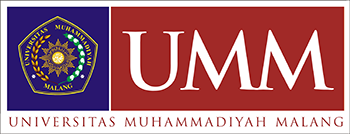Construction of Middle School Students (SMA) Against Political Education (Phenomenology Study of State High School 3 Malang Students)
DOI:
https://doi.org/10.22219/logos.Vol2.No2.225-243Abstract
Abstract
An interesting phenomenon appears related to the relationship between high school students, schools, parents, and the government. The relationship between students and school raises the tendency for more students to spend more time at school. Besides, the majority of parents intensively encourage their children to engage in physical and organizational activities, even to conduct 'politics' in the school environment. Another phenomenon shows that the government has made several efforts, including in political affairs, to prepare students to become citizens as a whole. This paper uses a phenomenological approach to describe and understand the construction of high school students towards political education. In addition, in theory, this research was conducted to find propositions related to the development of political education. This study uses a qualitative model by taking the locus in the Intra-School Student Organization (OSIS) and Class Representative Chair (PK) of SMAN 3 Malang. As informants are teachers of Parental Education and parents. This research shows that the construction of high school students towards political education is in the form of political education concepts, implementation, objects, and their benefits. In the operational stage of Piaget's intelligence, the construction pattern is as follows: external environmental pressure, reflective, incomplete, fumbling and assimilating. Furthermore, based on the theory of Berger and Luckmann, the construction of political education of students follows dialectics with moments of externalization, objectivation, internalization, socialization, and resocialization to form knowledge reserves.
Keywords: Students, political education, SMAN 3 Malang
Downloads
References
Asshiddiqie, J. (2013). Menegakkan etika penyelenggara pemilu, PT RajaGrafindo Persada.
Berger, P. L., et al. (1990). Tafsir sosial atas kenyataan: Risalah tentang sosiologi pengetahuan, LP3ES.
Creswell, J. W. (2010). "Research design pendekatan kualitatif, kuantitatif, dan mixed." Yogyakarta: Pustaka
Pelajar.
Crick, B. and D. Heater (2012). Essays on political education, Routledge.
Michael, R. and P. Althoff (1997). Pengantar Sosiologi Politik, Raja Grafindo. Persada. Jakarta.
Piaget, J. (1952). The Origins of Intelligence in Children New York: Int, Univ. Press.
Soeprapto, A., et al. (2015). "Komunikasi Dalam Proses Pendidikan Politik Pemilih Pemula Dalam
Pemilihan Umum 2014 di DIY." Jurnal Ilmu Komunikasi 12(1).
Surbakti, R. (2010). "Memahami Ilmu Politik, Jakarta." PT Gramedia Widiasarana Indonesia.
DPP Partai Nasdem. tanpa tahun. Anggaran Dasar dan Anggaran Rumah Tangga Partai Nasdem.
Naskah tidak diterbitkan.
DPP Partai Kebangkitan Bangsa. (2014). Anggaran Dasar dan Anggaran Rumah Tangga Partai
Kebangkitan Bangsa. Jakarta: Sekjen DPP PKB.
Downloads
Published
How to Cite
Issue
Section
License
Copyright (c) 2019 Basuki Agus

This work is licensed under a Creative Commons Attribution-ShareAlike 4.0 International License.
Authors who publish with this journal agree to the following terms:
- Authors retain copyright and grant the journal right of first publication with the work simultaneously licensed under a Creative Commons Attribution-ShareAlike 4.0 International License. that allows others to share the work with an acknowledgment of the work's authorship and initial publication in this journal.
- Authors are able to enter into separate, additional contractual arrangements for the non-exclusive distribution of the journal's published version of the work (e.g., post it to an institutional repository or publish it in a book), with an acknowledgment of its initial publication in this journal.
- Authors are permitted and encouraged to post their work online (e.g., in institutional repositories or on their website) prior to and during the submission process, as it can lead to productive exchanges, as well as earlier and greater citation of published work (See The Effect of Open Access).

This work is licensed under a Creative Commons Attribution-ShareAlike 4.0 International License.













